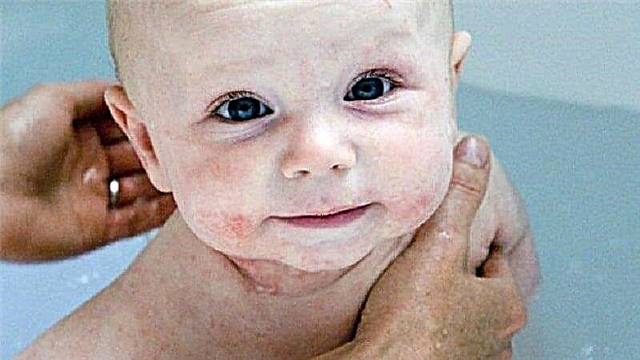
Conception of a baby is closely related to the process of ovulation, and without it it is not possible. Many are well aware that unprotected intercourse or interrupted sexual intercourse a few days before ovulation is more likely to lead to conception, but the period after ovulation is shrouded in mystery for most. This article will discuss the likelihood of getting pregnant after ovulation.

Physiology and conception of a child
In order for fertilization to occur, it is necessary to have two mature, full-fledged, ready to merge and capable of exchanging DNA information of sex cells - male and female. With men, questions usually do not arise. They are developed and regularly continuously renewed in the stronger sex from youth to old age. Sperm are ready to perform their function at any time if the man is healthy. But the female reproductive cell has to wait.
It matures during the first half of the female cycle within the dominant follicle. The process of its rupture with the subsequent release of the germ cell is ovulation. Usually it falls in the middle of the cycle, more precisely, on the day two weeks before the expected date of the next menstruation (14 must be subtracted from the cycle duration). The process itself takes about an hour. During this time, the female reproductive cell manages to leave the follicle with free fluid into the abdominal cavity, where it is caught by the villi of the fallopian tubes and pulled into the ampullar part of the fallopian tube. It was there that nature created the most favorable conditions for fertilization.
From this moment, a kind of countdown begins. The ovum has a short life span. It exists with hormonal support of the female body from 24 to 36 hours. It is during this period that you can become pregnant, that is, physiologically it is possible for gametes to merge.

If the sperm does not meet with the oocyte in 36 hours, the egg will die, descend into the uterine cavity, from where, together with the excess endometrium, it will come out with the next menstruation, and the cycle will start over.
Sperm can be present in the genital tract of a woman in anticipation of ovulation, if the act was 1-4 days before the release of the egg. In this case, there is often no need for sex directly on the day of ovulation - the male germ cells immediately fertilize the oocyte that has emerged from the follicle, fusion, DNA exchange occurs, and a zygote is formed - a new cell, your future baby.
The likelihood of pregnancy is high even if the sperm reach the oocyte before it has lost its viability (within 24-36 hours). Considering that the male reproductive cell moves on average at a speed of 2-4 mm per minute, it can take about 40 minutes to travel from the vagina to the ampullar part of the fallopian tube.

Probability by day
The chances of pregnancy are highest on the day of ovulation and during the first days after it. They are estimated by reproductive specialists around the world at about 33% (for healthy, young couples). With age, the quality of germ cells decreases, sperm become less mobile, the amount of sex hormones in men and women decreases, women often experience anovulatory cycles, when the egg does not mature, in general, and for this reason, conception cannot be.
The highest chances of conceiving are during intercourse on the first day after ovulation. Moreover, even interrupted sexual intercourse can lead to pregnancy, because sperm can be contained in the physiological lubricant produced in men at the time of sexual arousal.
Further, the odds are disproportionately reduced:
- after 2 days - 20-23%;
- after 3 days - 1%;
- after 4 days - 0.1%.
After 5, 6 days, and also a week after ovulation, conception is impossible for biological reasons - either there is no longer a living egg (it existed for a maximum of two days), or there is already a zygote, which just at that time became blastocyst and is trying to implant in endometrium to continue pregnancy.

It is possible to more accurately answer the question of whether it is possible to conceive if intercourse was already after ovulation when analyzing the accompanying data.
The probability is higher if:
- no more than two days have passed from ovulation to sexual intercourse;
- a woman has a low level of acidity of the vaginal environment and a normal body temperature;
- a large number of spermatozoa got into the genital tract, ejaculation was full, since a decrease in the number of living and motile spermatozoa also reduces the chances of conception.
Immediately after ovulation, the remnants of the follicle membranes, in which the egg has matured, are converted into the so-called corpus luteum is a temporary gland that produces progesterone. In addition to its main function of preparing the female body for a possible conception, this hormone, as shown by the latest scientific research, has another amazing property: it somewhat increases the speed of movement of sperm, acting on the acrosome and isthmus of the male reproductive cell. Perhaps, in this way, nature is trying to "rush" male gametes so that they have time to reach their goal at least on the last fertile day.
Conclusions: Conception is most likely if intercourse was performed 1-2 days after ovulation. After this period, the onset of pregnancy is physiologically impossible.

Exceptions to the rule
Sometimes on thematic women's forums and in communication with real women, you can hear statements that you still managed to get pregnant after sex, which took place a few days after ovulation.
Here you need to understand that it is rather not about sexual intercourse after ovulation, but about late ovulation, about a shift in the day of release of the egg at a later date, which the woman did not know about... But sometimes the so-called double ovulation also occurs, which can also theoretically cause pregnancy, even if the act, in the woman's opinion, was performed later than the expected date of the oocyte's release from the follicle.
Late ovulation
This is considered the release of an egg in a time that exceeds the expected due to the lengthening of the first phase of the cycle. This condition is associated with hormonal imbalance, usually with late or insufficient LH production and estrogen deficiency. And also the reason may lie in a reduced level of FSH, due to which the follicle grows slowly.
Ovulation in women who have recently had an abortion, or if not so long ago, their cycle after childbirth began to recover, may become late. Strong experiences, psychological instability, emotional upheaval and stress are the causes of menstrual irregularities. Ovulation can be late when traveling, changing climate and time zone, because all the settings of the "biological clock" are lost.
Late ovulation sometimes happens against the background of the abolition of oral contraceptives, as well as after the flu or SARS that a woman has had. The reasons can also lie in genital infections, obesity, disruption of the ovaries, hypothalamus and pituitary gland, thyroid gland, adrenal cortex.


Important! The onset of pregnancy with late ovulation and after it is less likely than with the timely release of the germ cell from the follicle.
If pregnancy occurs, the risk of its spontaneous interruption, miscarriage, and fetal developmental abnormalities increases, since the quality of the genetic material of the female reproductive cell suffers during overmaturation, and the endometrium is less ready for implantation, which is fraught with the development of pathologies of the chorion and placenta.
Double ovulation
The very phenomenon of double ovulation among doctors still causes professional controversy and doubts. Many people believe that two oocytes cannot mature in succession twice per cycle, only the simultaneous maturation of two follicles and the release of two oocytes on one day is possible. There are also supporters of a different opinion, who argue that in an atypical cycle, the successive release of two eggs is quite possible.
With simultaneous double ovulation, everything is clear - instead of one, two germ cells come out either from one ovary, or from different ones. In this case, when both cells are fertilized, twins can be born. - children dissimilar to each other, possibly even of different sex. If one of the eggs, for reasons unknown to science, divides on 3-4 days of zygote cleavage, then there is also a chance to give birth to triplets, while two will be same-sex and similar twins, and one by itself.
Everything is much more complicated with double ovulation, in which there is a certain gap in time between the first and second. It can be several hours or several days, but no more than seven days. This is how long it takes for the corpus luteum to enter the flowering stage and begin to produce significant doses of progesterone, which suppress follicular activity.

Double ovulation is rare. Usually this can occur as a hormonal dysfunction of the ovaries, for example, against the background of hormonal stimulation of ovulation. The first ovulation is stimulated, and the second can be spontaneous, for example, 3-4 days after the first.
Pregnancy in double ovulation can occur. If this did not happen in the first, it is quite possible to conceive in the second, while the woman herself will not even think that she now has a viable egg... For her, the period will be barren, because all calendars and calculators say so. Twin pregnancies during ovulation with a temporary break can also happen, but this is a completely unique phenomenon. Usually, the second embryo cannot gain a foothold in the uterine cavity, since the first has already been implanted there, and the conditions for implantation and development of the second are absent. In world practice, only a few cases are known when both embryos took root in a woman's womb, but in all cases the difference in ovulation was no more than three days.
If a woman is being treated for infertility, she is prescribed hormone therapy, such "jokes" of nature can be explained, but the nature of natural repeated ovulation, which happens without hormones, science does not yet know for sure.
Presumably, stress, shock, emotional shaking, physical overstrain, irregular sex life, as well as the consumption of large quantities of foods with high concentrations of phytoestrogens (most often medicinal plants) can affect the endocrine background.


Useful Tips
If you are planning a pregnancy, intercourse after ovulation is not your option. To increase the likelihood of conceiving a baby, it is worth starting sexual intercourse before ovulation in about 4-5 days, and having sexual intercourse every other day (to improve sperm quality). Be sure to carry out the act on the day of ovulation, in extreme cases - on the first day after it. Do not use lubricants, do not douche before and after intercourse.
If your goal is to protect yourself from unwanted pregnancy, then pay special attention to the question of the likelihood of the onset of an "interesting position" after ovulation. Especially - atypical reasons for the shift in ovulation at a later date. It is far from always possible to "catch" late ovulation by sensations, tests, and there is nothing to say about double ovulation (even doctors are not always able to diagnose it accurately). That is why the calendar method of contraception is considered unreliable, and specialists in the field of reproductive health argue that, in theory, you can conceive at any time, because a woman cannot control complex internal processes.
Therefore, contraceptives, so as not to wonder whether or not it is possible to conceive after ovulation, it is recommended to choose, together with a doctor, such funds that will remove all further questions and will be safe for women's health.
There is a large selection of contraceptives with different effects. And while taking popular oral contraceptives, ovulation does not occur at all, and therefore there are no risks of pregnancy.




